The outing of LGBTQ people has begun. Last weekend — four months into the coronavirus pandemic — news outlets in South Korea started pub...
The outing of LGBTQ people has begun. Last weekend — four months into the coronavirus pandemic — news outlets in South Korea started publishing the identities of gay men who have tested positive for the virus.
South Korea has been widely praised for its suppression of COVID-19 through stringent testing and contact tracing. For a period in April, it reported zero new cases. But fear over a second outbreak in the capital, Seoul, was quickly diverted onto gay men when a Christian newspaper reported that the few dozen new cases associated with nightclubs in the Itaewon area were gay venues.
Not all of those diagnosed were gay, and not all of the nightclubs linked to the new cases were gay venues, but a slew of other news organisations started publishing the names, addresses, and workplaces of gay people who had tested positive. Further revelations that two of the men had been to a gay sauna followed, unleashing a wave of hostility.
The incident echoes the anti-gay backlash that permeated the AIDS crisis and marks the latest in an emerging global trend during the COVID-19 pandemic: the scapegoating of LGBTQ people.
As racist stereotyping, finger-pointing and street attacks persist, reports across the world reveal a parallel phenomenon: Institutions of power — from governments and churches to police and media — are blaming sexual or gender minorities for the spread of the virus.
It forms part of a wider campaign against LGBTQ people, the resonance of which stretches back decades. With the world’s attention elsewhere, administrations are capitalising on the crisis by removing LGBTQ rights, weaponising lockdown restrictions against members of this community, and neglecting those who cannot access government support because of their identity — with many left destitute and in danger.
Human rights defenders are calling for help, warning of the collateral damage within and beyond this minority. But in the chaos of a pandemic, the message is going largely unheard.
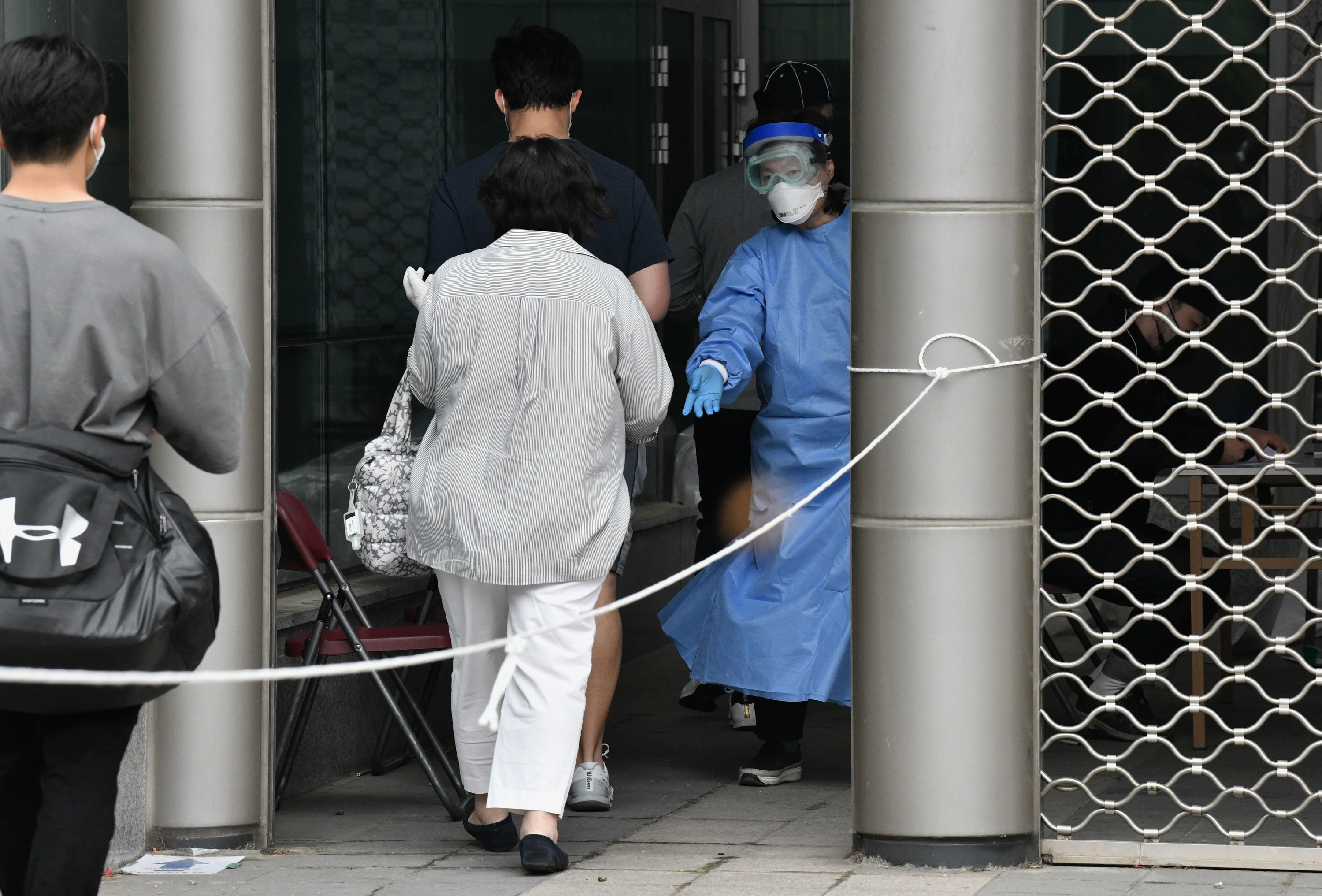
A virus testing station in the nightlife district of Itaewon, Seoul, on May 12.
The South Korean paper — Kukmin Ilbo — that instigated the backlash has campaigned for Christian rights for 30 years. It reports anti-gay protests, such as last year’s rally “against the queer festival”, as critiques on the government’s “policies supporting and advocating homosexuality”. Although homosexuality is not illegal in South Korea, it remains a socially conservative country with no same-sex marriage, no nationwide ban on anti-LGBTQ discrimination, and few out public figures, while military personnel can be imprisoned for homosexuality.
The outing and scapegoating spread within a few hours, prompting prime minister Chung Sye-kyun to instruct citizens not to blame “a certain community”. The reason he gave was not because it could incite hatred or violence but that it would hinder efforts to contain the outbreak. Reports had already surfaced of LGBTQ people avoiding coronavirus testing through fear that they too would be outed.
A Twitter thread written by Hyunsu Yim, a reporter at the Korea Herald, was widely shared at the weekend as he outlined the impact of such targeting. “Gay people on dating apps are now receiving threats of being doxed,” he wrote. “Frustration is now turning into a palpable hatred. I know at least two gay men who took down their photos from dating apps in fear of being outed [who] have received ominous messages like, ‘you took your pictures down’ and ‘you’ll see soon’ from blank profiles.’”
Such scapegoating is not confined to South Korea. The dissemination of fake news is enabling LGBTQ people to be blamed for the coronavirus pandemic wherever social media flourishes. In late March, an account under the name Tony White uploaded footage to Facebook supposedly of a packed gay dance party in Italy, revealing the faces of people attending and accompanied by the allegation that such gatherings were responsible for the country’s huge surge of COVID-19 cases.
"God has every right to be angry with humanity, this was the last gay conference in Italy before the virus attack,” he wrote in the original post. "Let's continue to pray for His mercy to prevail over judgment, just see what is going on couple with innocent blood crying for revenge [sic]." It was shared over a thousand times. The clip began to circulate on religious social media accounts across Twitter and Instagram, some with homophobic slurs.
A galera do Bloco Crocodilo, que será puxado por Daniela Mercury, já aguarda ansiosa início do desfile na Barra. #carnaval2018
See Alan Alves's other Tweets
The trouble was, as AFP reported after investigating the origins of the video clip, it actually derived from a carnival in Brazil in 2018. And it wasn’t even gay — the partygoers were all wearing the sleeveless rainbow-coloured shirts seen in the video because everyone was given one as proof of paid entry to the street party. Two weeks later, the original post was removed, by which time it was too late: the lie had travelled faster than the truth.
Fear of being outed and shamed amid the pandemic is surfacing particularly where contact tracing is taking place. In Japan, a survey of LGBTQ people conducted last month by a same-sex marriage advocacy group found many anxious about the threat of public exposure in the event of health officials demanding to know where they had been and with whom — and therefore were avoiding being tested.
They feared too the prospect of hospitalisation with COVID-19: whether their relationship would be deemed worthy of next-of-kin status, whether they would be consulted by doctors and allowed to make key decisions.
The anti-gay backlash online chimes with the actions of governments and officials across the globe as they seek to deflect criticism of their handling of the crisis. Some use the fear of COVID-19 as leverage against LGBTQ people as part of a wider culture war. This has led at times to bloodshed.
Video footage emerged earlier this month of police in Kampala, Uganda, raiding an LGBTQ shelter. It captured the local mayor arriving in time to berate and beat the residents with a stick. They were tied with rope, led to the police station, arrested, and charged with offences related to social distancing. The shelter’s program director described the incident, occurring during lockdown measures, as “an opportunity to get rid of us”.
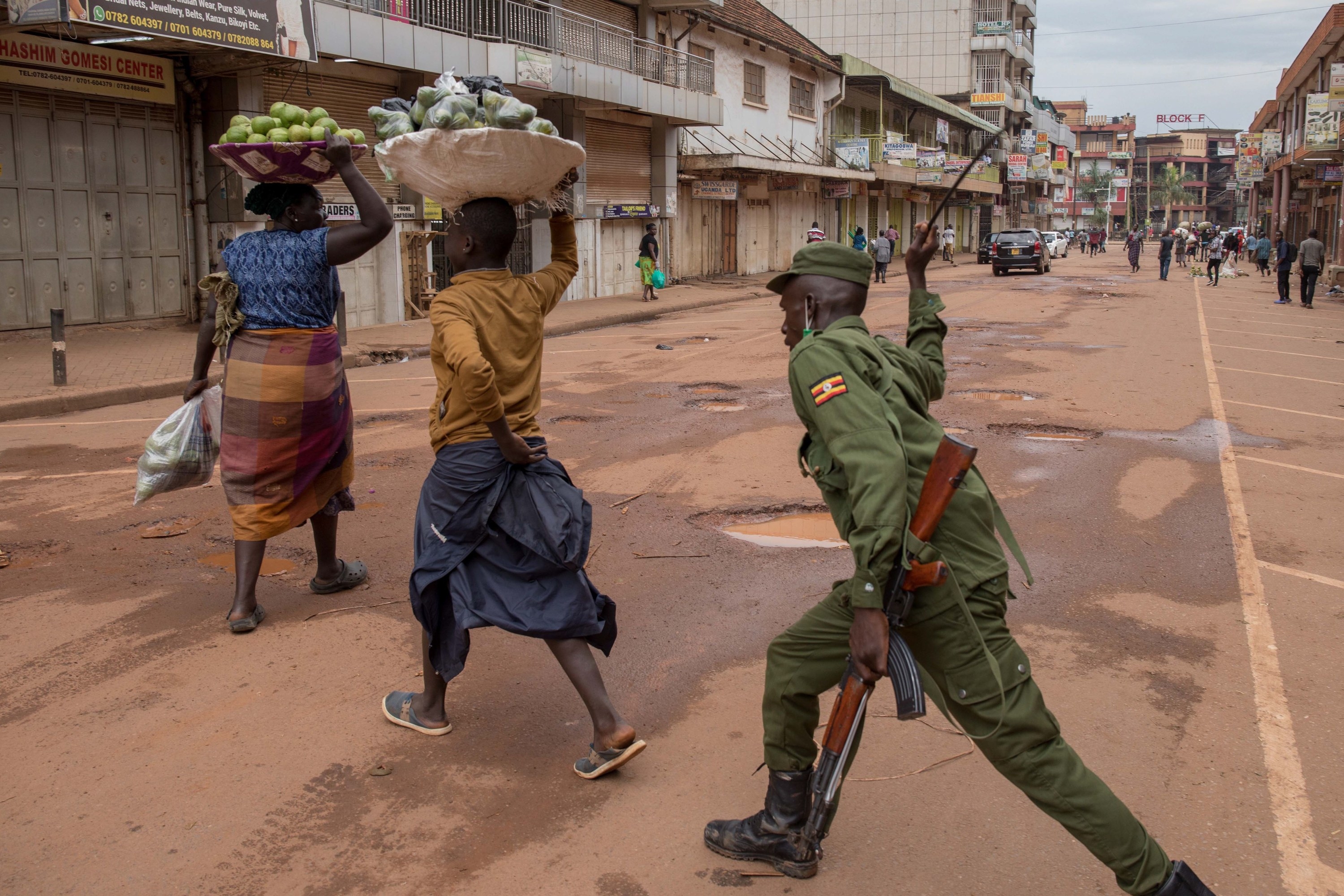
A police officer beats a female orange vendor on a street in Kampala,
Police in Georgia have been accused of using lockdown restrictions as an opportunity to brutalise LGBTQ people. A trans woman called Sesili Tsomaia said she and her friends were apprehended by a group of police under the guise of being on the street after curfew. But, she told local news outlet On.ge, it descended into police taunting, kicking, and beating them. “They dragged me two or three metres. After that, while I had my hands tied, the one in charge came and kicked my back,” she said.
Elsewhere, regimes have seized the climate of social control, ushered in by COVID-19 lockdowns, to unravel human rights for LGBTQ people. In Hungary, Viktor Orban, the increasingly authoritarian prime minister, passed new executive powers in late March, ostensibly to deal with the pandemic but widely criticised as a power grab. And the next day his government introduced a law that would end gender recognition. It means all legal documentation from passports to ID cards, which must be carried at all times, would revert to sex at birth, ensuring any trans person asked for ID would be outed. The bill is expected to pass.
Several Hungarian transgender people, along with the country’s leading LGBTQ rights organisation, told BuzzFeed News that the proposed law has caused trans people to try to flee — while many others warned on social media that they planned to kill themselves.
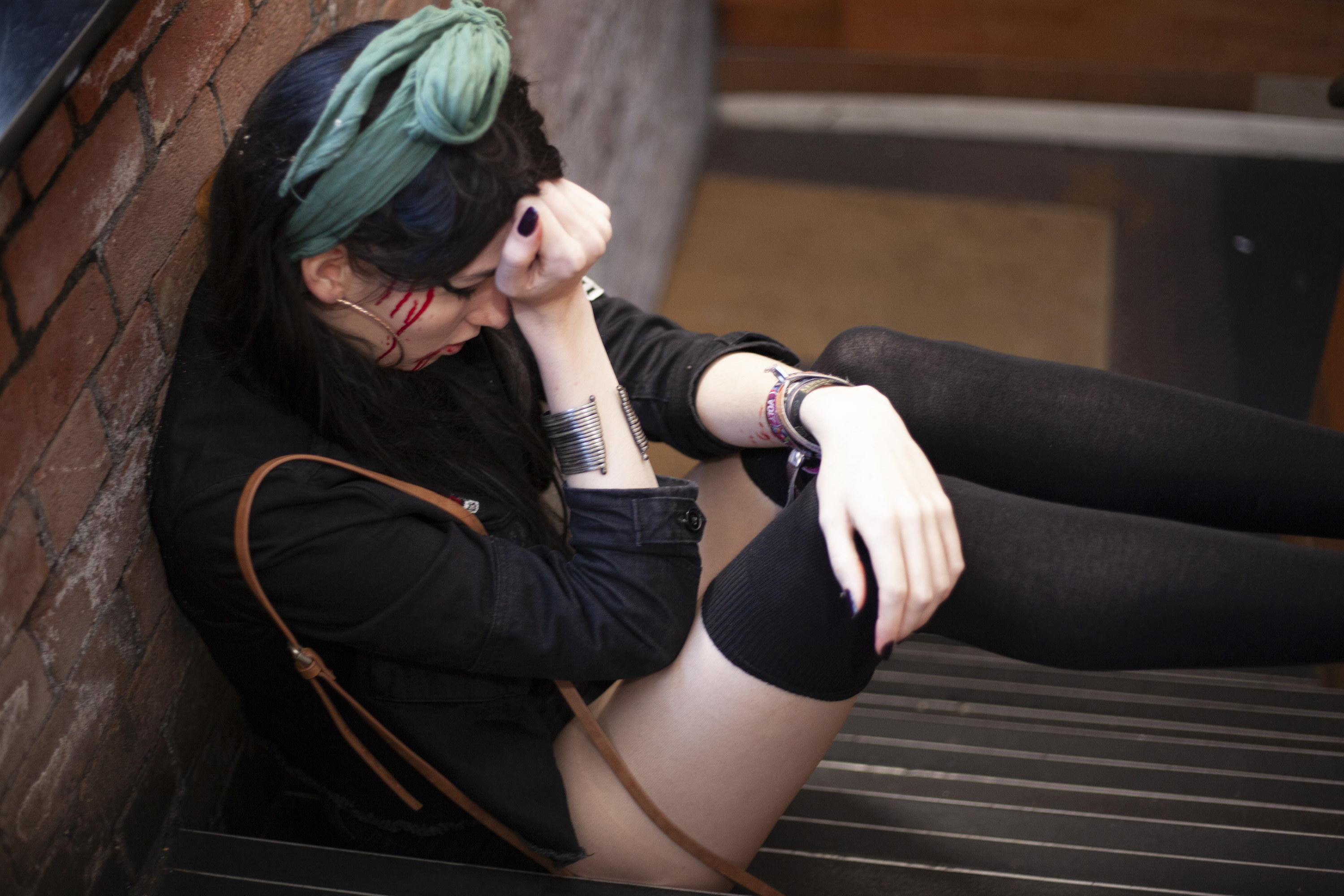
Hungarian trans advocate Emma Molnar.
Human rights advocates in Puerto Rico accused the administration there of a similar kind of opportunism. A 2018 court ruling had ordered the island’s lawmakers to recognise trans people’s gender on legal documents. But rather than comply fully with this, a new “civil code” has been proposed which would keep birth certificates and other forms of ID as they are, with sex at birth, but adding in the margins the person’s acquired gender — outing the individual the moment such documents are presented.
“In the middle of the COVID-19 pandemic and the wave of violence affecting transgender people in the island, Puerto Rico’s legislature chose to prioritise a flawed new Civil Code, without the benefit of public hearings or an open process,” said Lambda Legal, the LGBTQ civil rights group which successfully won the 2018 court case and seeks to block this amendment.
In other countries, the terms of state-imposed lockdowns have led to violent hate crimes. In Bogota, Colombia, men and women were told to leave the house on separate days to assist social distancing. But it led to the public policing of gender. According to local news reports, trans women were challenged or attacked for being outside on the “wrong” day. One was stabbed. The less "feminine" trans women looked, the more likely the attack. In Peru, when the government introduced alternate days for men and women to leave the house, it led to a flurry of anti-LGBTQ attacks. But this time, the policy was withdrawn.
Financial assistance offered by governments during lockdown has excluded LGBTQ people. Trans women sex workers in Greece who do not have full legal recognition were blocked from government money because only those with female documentation were deemed to be working legally.
The Eastern European Coalition for LGBT+ Equality — an advocacy group — issued a statement condemning the lack of state help for LGBTQ people under lockdown across the region. It warned of increased “vulnerability to violence and discrimination (including due to higher level of surveillance and police and military presence)”; of LGBTQ sex workers facing greater levels of harassment and violence from law enforcement agencies; and LGBTQ homeless people “in an especially precarious position with drastically decreased chances of finding even short term employment and temporary housing solutions”.
As LGBTQ homelessness charities in the UK revealed to BuzzFeed News last week, lockdown is leading to parents discovering their children’s identity and evicting them onto the street. But, they added, with provisions for the homeless providing little guarantee of protection from hate crimes, and an online world fuelling them, what chance do they have?
Ricardo Arduengo
All of the above — scapegoating, opportunistic discrimination, and violence — has deep historical roots for a community long blamed for disasters.
Most recently, today’s outings and vigilanteism invoke the wave of violence against gay men in Russia in 2014 in which mobs used hookup apps to lure victims to private houses and beat them. And in particular the decision in 2010 by Uganda’s Rolling Stone newspaper to publish the names and photographs of gay men, which many believe triggered the murder of David Kato, the most prominent activist in the country.
But scapegoating has been the principal weapon used by governments against LGBTQ people for the last century at least. The mechanism is always the same: wrap this minority in the most flammable, incendiary issue of the day and ignite it: from crop failure, famine, earthquakes, and HIV to the EU, communism, the breakdown of the family or democracy itself.
Italian dictator Benito Mussolini’s administration in the 1930s declared the apparent femininity of homosexuality a threat to the machismo of fascism, and used it to justify rounding up dozens of gay men who were then taken to the island of San Domino off the Adriatic coast, and in a nod to today’s crisis, quarantined. Or as one police chief said, in order to stop “the spreading of degeneration” that is “disastrous to public health”.
As McCarthyism raged in the US in the 1950s to oust apparent communists from public life, a tandem witch hunt, justified by the apparent "security threat" posed by sexual minorities, was deployed to oust gay people from government jobs: the so-called “Lavender scare”. At the height of the AIDS epidemic, Margaret Thatcher's UK government weaponised the fear of sex, of the sexualisation of children and of the end of the nuclear family, to gag teachers from mentioning homosexuality in her notorious Section 28 legislation. And in the last decade, Vladimir Putin was accused of staging phoney rallies in Ukraine where actors were draped in both rainbow flags and EU flags to align LGBTQ people with the threat of the West — and stoke antipathy towards both.
But there is one incident from the 1980s that resonates, above all, reflecting back onto today’s scapegoating to reveal how easily the wrong people can be blamed for a pandemic. It comes from another grim chapter in the history of AIDS.
For decades, the finger of blame for the US epidemic was pointed at Canadian flight attendant Gaetan Dugas, referred to as “patient zero”. Many condemned him for being the promiscuous node that sparked all the early cases; particularly after Randy Shilts, the esteemed author of And the Band Played On — a seminal 1987 book about the emergence of AIDS — depicted Dugas as wantonly infecting thousands of men as he slept around, to hell with the consequences.
That was until the truth surfaced long after his death in 1984. The original report from the CDC that apparently had cited him as “patient zero” in fact had listed him as “patient O” — the letter — an abbreviation of “out”, as in outside the area; in his case, “Out-of-California”. It had nothing to do with him being the first person with HIV, or for being responsible for its rapid transmission.
The mistake was repeated so often as to go unnoticed and unchallenged. It led to the more widespread use of the phrase “patient zero” that persists today — despite it never meaning anything of the kind.
But it is not the only stigmatising language repurposed from AIDS fresh for the coronavirus pandemic: newspaper headlines have screamed “superspreaders” for months over pictures of people out enjoying the sunshine; photos often later found to distort how closely those pictured really sat. Social media has fuelled this too. A picture of groups sitting in London Fields, a central London park, went viral last weekend long enough to ensure the park was trending on Twitter, and long before it was revealed to be two years old.
As fear and anger grows, with fingers wagging at the “COVIDIOTS”, social media platforms too slow to stop fake pictures or hate speech, and newspapers happy to name and shame LGBTQ people, even without governments seizing the opportunity, all the machinery of mob violence is there — waiting.

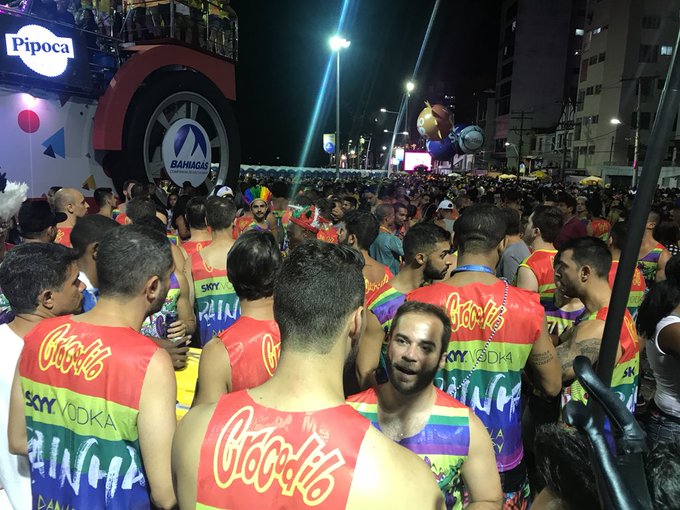
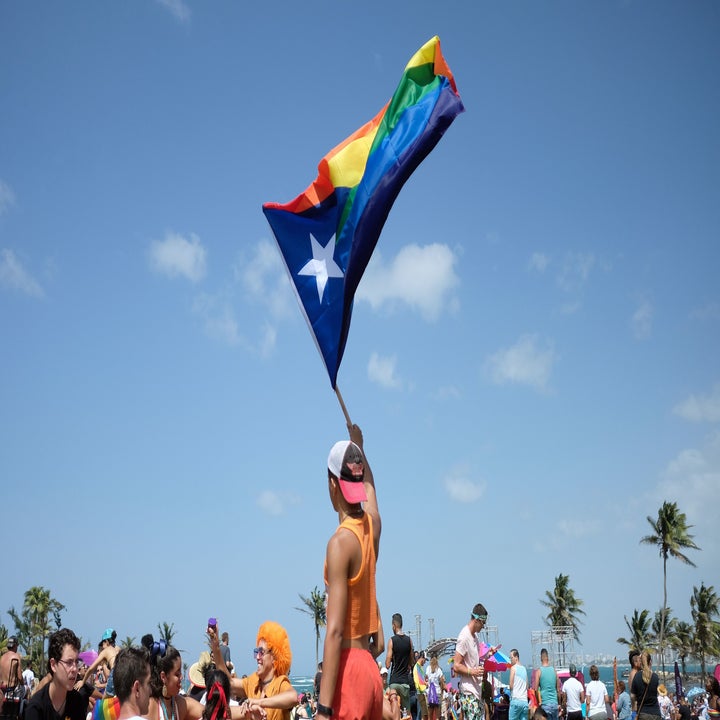
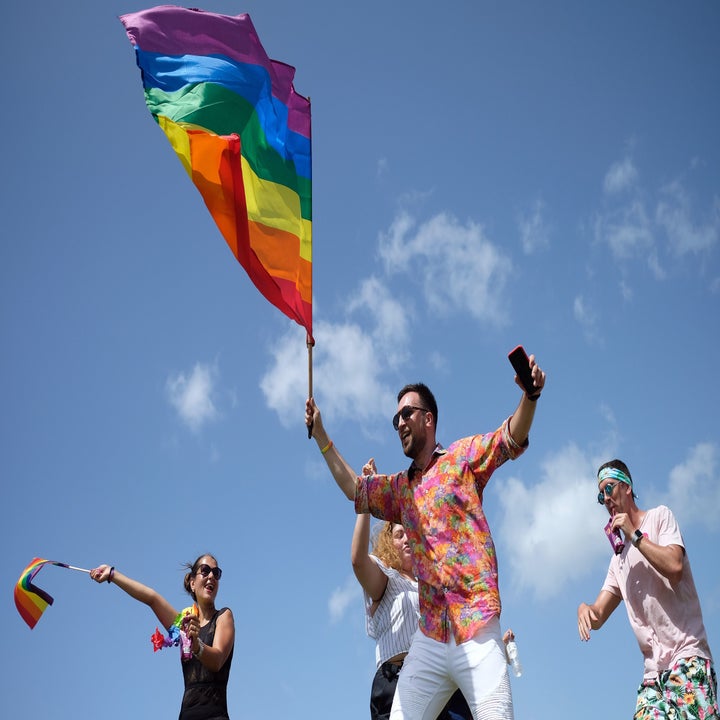
No comments